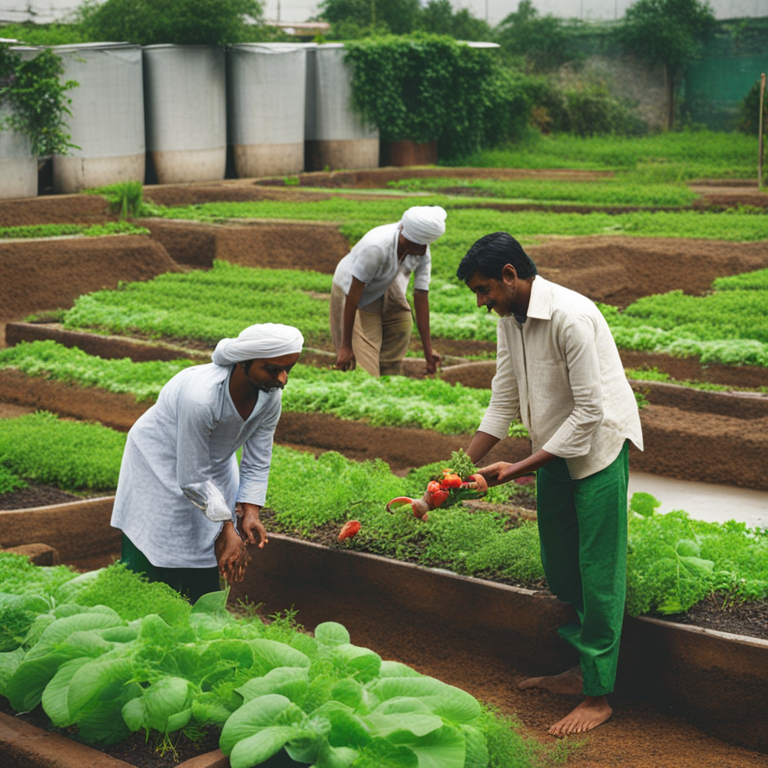Introduction:
Urban farming has become increasingly popular in India in recent years as people seek healthier and more sustainable food options. With the rise of urbanization and the shrinking availability of arable land, urban farming has provided a way for city dwellers to grow their own food and reconnect with nature. In this blog post, we will explore the trend of urban farming in India, its benefits, challenges, and tips for starting your own urban farm.
Benefits of Urban Farming in India:
1. Access to fresh, organic produce: One of the main benefits of urban farming is that it allows people to grow their own fruits, vegetables, and herbs right in their own backyard or on their balcony. This means they have access to fresh, chemical-free produce all year round.
2. Reducing carbon footprint: By growing food locally, urban farmers are able to reduce the carbon footprint associated with transporting food long distances from rural areas to cities. This helps to lower greenhouse gas emissions and combat climate change.
3. Building community resilience: Urban farming helps to build community resilience by providing a reliable source of food in times of crisis, such as during natural disasters or economic downturns. It also fosters a sense of community spirit and cooperation among neighbors who come together to grow and share food.
Challenges of Urban Farming in India:
1. Limited space: One of the main challenges of urban farming in India is the limited availability of space in cities. Many urban farmers have to get creative with their gardening techniques, such as vertical gardening, container gardening, or rooftop farming.
2. Water scarcity: Water scarcity is a major issue in many Indian cities, making it challenging for urban farmers to water their plants regularly. Water conservation practices, such as rainwater harvesting and drip irrigation, can help mitigate this challenge.
3. Lack of awareness and support: There is still a lack of awareness and support for urban farming in India, with many people unaware of its benefits or how to get started. Government policies and initiatives promoting urban agriculture can help to address this issue.
Tips for Starting Your Own Urban Farm in India:
1. Start small: If you are new to urban farming, start small with a few easy-to-grow crops like tomatoes, spinach, or herbs. As you gain experience, you can expand your garden and try growing more challenging crops.
2. Choose the right location: Select a sunny spot for your urban farm, as most plants require at least 6-8 hours of sunlight each day. If you don’t have a garden, consider container gardening on your balcony or rooftop.
3. Use organic practices: Avoid using synthetic chemicals and pesticides in your urban farm, as these can harm the environment and your health. Instead, use organic fertilizers and natural pest control methods to keep your plants healthy.
Conclusion:
Urban farming is on the rise in India as more people recognize the benefits of growing their own food in urban settings. From access to fresh, organic produce to reducing carbon footprint and building community resilience, urban farming offers numerous advantages for city dwellers. While there are challenges to overcome, such as limited space, water scarcity, and lack of awareness, with the right tips and practices, anyone can start their own urban farm and reap the rewards of growing their own food. By promoting urban farming and supporting initiatives that encourage sustainable agriculture in cities, India can move towards a more food-secure and environmentally friendly future.
👉 [Best Deals on Amazon!](https://amzn.to/abcd) | [Flipkart](https://fkrt.it/xyz123)
